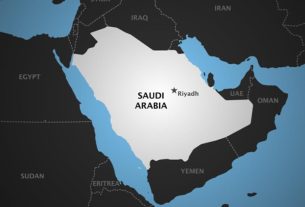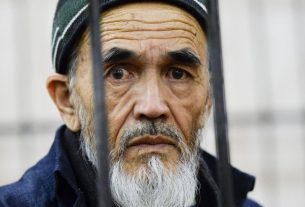(Beirut) – Lebanese Education Ministry and foreign donor officials meeting on September 13, 2023, to discuss financing for the new school year should reach an agreement that opens schools without interruption and averts a disastrous fifth year of lost learning for students, Human Rights Watch said today. The Education Ministry has still not secured sufficient funding for the school year set to begin in October, and Lebanese and donor officials are at loggerheads over funding for some teachers’ salaries.
The Lebanese cabinet approved US$50 million (5 trillion Lebanese pounds) in August for the Education Ministry, out of a $150 million budget request. It is unclear when the funds will be transferred. The caretaker education minister said the funds would keep schools open only for three to four months, leaving at least four months unfunded. International donor funding is crucial for public schools, which teach both Lebanese and Syrian refugee children, but donors have not said how much funding they will provide for the coming school year.
“Over the last four years, school closures in Lebanon have pushed over a million Syrian and Lebanese children to the brink,” said Bill Van Esveld, associate children’s rights director at Human Rights Watch. “If the government and foreign donors don’t reach an agreement that will keep schools open, Lebanon is looking at a children’s rights catastrophe.”
Since the Syrian conflict began, foreign governments have provided more than $2.5 billion to Lebanon to open schools to refugee children, and the number of students enrolled in public schools has nearly doubled. But Lebanese and Syrian children have received little education since 2019 as schools were closed for various reasons including anti-corruption protests, Covid restrictions, and teachers’ strikes. Due to rapid inflation, teachers’ salaries are worth just one-sixtieth of their former value. Principals earn about $65 per month.
Human Rights Watch spoke with four representatives of foreign donors, six international humanitarian workers, two Lebanese teachers’ representatives, and drew on research and reporting published by the Center for Lebanese Studies.
Some Lebanese politicians have misrepresented the support from foreign donors as being only for Syrian children. In fact, humanitarian sources said, donor funding pays for stationery and textbooks, and for school operating costs like heating, electricity and internet connections, for Lebanese and Syrian students alike. Donors have contributed on a per-child basis about $140 per Syrian student and $18.75 per Lebanese child. This funding was originally intended to offset the additional costs of scaling up Lebanon’s schools to enroll Syrian refugee children but is now crucial to keeping schools open for Lebanese children as well, sources said.
Donor governments have also supported the salaries of teachers for “second shift” classes for Syrian students, and of teachers with mixed classes of Lebanese and Syrian students. But foreign donors and the Education Ministry disagree over funding the salaries of teachers in classes with only Lebanese students, donor and humanitarian sources said. In August, the education minister appealed to donors to provide $80 million for the school year, but donors will not agree to pay salaries for staff fulfilling their normal job duties, donor and humanitarian officials told Human Rights Watch.
However, donors have previously shown flexibility. During the last two school years, donors and the Education Ministry agreed on “performance-based incentives” for all teachers, which topped-up teachers’ devalued salaries, based on verified attendance and teaching records. The World Bank also paid a one-time supplement to all teachers. But these payments, which drew on a $200 million World Bank and UK grant that had covered previous school years, is now exhausted, sources said.
By contrast, though, donors have provided $132 million to top up the salaries of Lebanese security forces since late 2022. Donor governments concerned for Lebanon’s national stability should consider the massive, destabilizing impact of a lost generation of children for Lebanon and the region, Human Rights Watch said.
Lebanese authorities should end their record of brinkmanship on refugee children’s access to education, Human Rights Watch said. During a strike by first-shift teachers in February 2023, which brought classes to a halt for Lebanese students, the Education Ministry also shut down second shift classes for Syrian children even though donor funding was available for them, with officials citing the need for “equality.”
Lebanon should also drop undue restrictions that have prevented refugee children from access to education, like requirements for documents or residency in Lebanon that are impossible for many to obtain, and a “two-year rule” that bars children who have been out of school for two or more years from enrolling in formal education.
Lebanon’s schools were not providing quality education even before these crises, but the school closures since 2019 have accelerated the decline in learning. Grade 6 students, on average, answered fewer than half of the questions correctly on Arabic literacy tests in 2021-2022, and across all grade levels, most students are 1 to 2 full years behind their grade level, teachers estimated.
The Education Ministry, citing financial constraints, reduced the number of teaching days from 180 in 2016 to just 96 in 2020, with only about 60 days of teaching in the last two years, and cancelled one of the two nationwide examinations for three of the last four years. Under its current leadership, the Ministry has published curricular and pedagogical reform plans, developed with donor support, which humanitarian education actors said were positive and necessary, but said in early September 2023 that the priority now must be to stop the loss of learning hours and open schools on time.
Education sources noted improvements in planning and coordination between donors and the Education Ministry under the current caretaker education minister, including summer school classes to help children make up lost learning. For the first time in several years, the Ministry had proposed its draft budget to the government before the start of the school year. Moreover, the Ministry contributed more than a third of the funds for teachers’ “incentive” payments last year, rather than demanding donor funds, according to a humanitarian education source.
Education funding has been prey to Lebanese government mismanagement, corruption, and the Finance Ministry’s grossly overvalued exchange rates that devalued foreign-currency donations and further devalued teachers’ salaries upon withdrawal. Education donors now transfer funds to school bank accounts in US dollars and wire funds directly to teachers, with greatly improved transparency, checks and audits under a program called the Transition Resilience Education Fund.
The foreign countries that provide education funding for Lebanon should also regularly publish transparent financial updates. That would enable Lebanese civil society to hold the government accountable, avoid politicized disputes over funding shortfalls, and undercut xenophobic misrepresentations about donor funding for refugee education, Human Rights Watch said.
“It is still virtually impossible to know how much education funding has been promised and delivered by donors and the government, which undermines accountability,” Van Esveld said. “Foreign donors should lead by example with public transparency as to their own education funding in Lebanon.”


